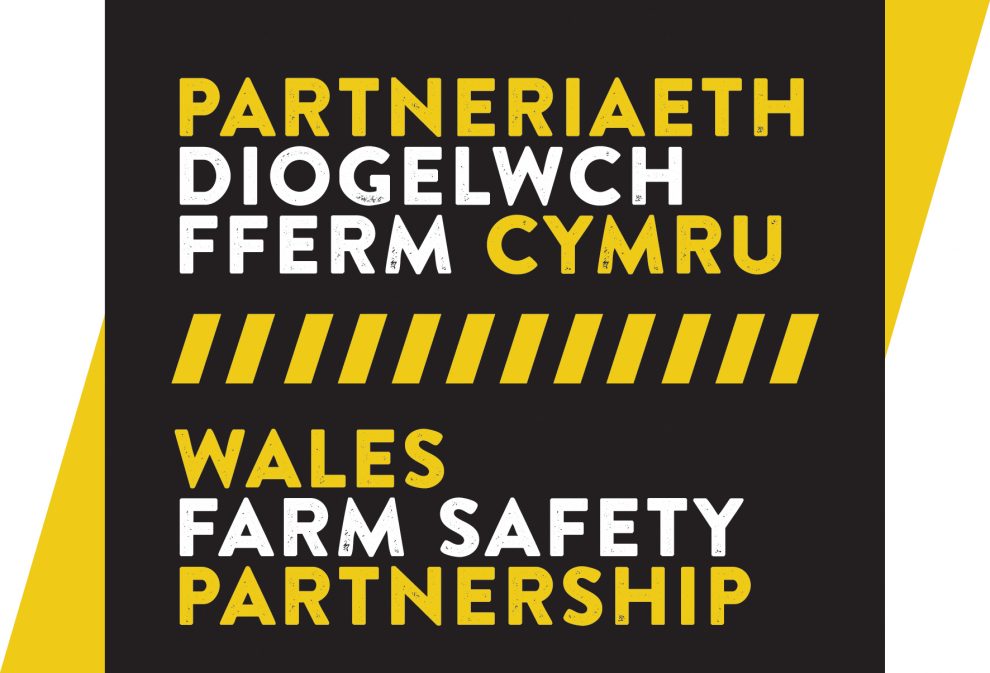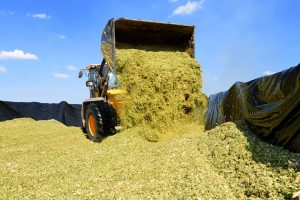ON MAY 2017, a nine-year-old boy was seriously injured at a Devon farm. Travelling as a passenger, he had toppled off an ATV being driven by a 13-year-old. The younger boy, whose leg was badly crushed, spent weeks in hospital, needed a skin graft from his back and he underwent weeks of intensive physiotherapy. The older boy was undoubtedly traumatised too. In January this year, the farm partnership responsible for the boys’ welfare and safety were fined £28,333 and ordered to pay costs.
This shocking incident, like many others throughout Wales and the UK, could have been avoided if simple safety precautions had been taken and the law adhered to. Farms and farmyards can be hazardous places for every age group, but children are particularly at great risk if allowed to play, visit or help out around the farm unsupervised.
The Wales Farm Partnership (WFSP), a collaboration of all the key agricultural stakeholder organisations in Wales, has issued a warning to all rural families reminding them that ‘children should not be in the workplace, it is illegal for under 13s to ride on agricultural vehicles or machinery and work equipment like ATVs should not be used by children.’
The WFSP is determined to encourage farmers everywhere to reduce the risk of on-farm accidents through its ongoing hard-hitting farm safety awareness campaign. This month, its members will remind farmers and foresters everywhere that the Health & Safety Executive (HSE) will not hesitate to take appropriate enforcement action against those that fall below the required standards, especially where children are involved.
Being struck by or run over by farm machinery or visiting vehicles is the biggest single cause of children being killed on farms. Accidents most frequently reported in the UK involve falling from tractors and ATVs or quad bikes. But danger lurks everywhere! Year after year, we hear of tragedies involving children on farms drowning or being asphyxiated; being crushed; hit by falling objects or collapsing stacks and injured by animals.
At a working farm, unsupervised children, who are naturally inquisitive and often fearless, can face risk from almost everything in sight as well as the human element – the unsuspecting family member, visitor or delivery person who drives onto the yard, unaware children are running around freely.
Brian Rees chairs the WFSP. An experienced farm safety trainer and one of Farming Connect’s approved farm safety mentors, Mr Rees is also a farmer whose three children, all now grown up, were brought up on his family’s working farm in mid Wales.
“Farmers themselves often misguidedly believe that farm children understand farm risks, but most children who die or are injured in farm incidents are family members, which tells its own undeniably sad story.”
He advises that staying up to date with best practice, knowing your legal obligations and making sure that children are supervised at all times is essential.
“The most important point is that, to meet your legal duties and keep children safe, children should not be allowed in the farm work place (and for young children they should enjoy outdoor space in a secure fenced area).
“By implementing a few straightforward safeguards and by ensuring proper supervision of children at all times, every farming family can and must reduce the risks of life-ending or life-changing accidents.”
Any access to the work area by children under 16, for example for education, or knowledge experience, should be planned and fully supervised by an adult not engaged in any work activity.
Children under the age of 13 years are specifically prohibited from driving or riding on any agricultural machine.
“If you’ve got a computer or smartphone, you can get up to speed very easily by accessing guidance on best practice from both the Health & Safety Executive (HSE) website and also that of the Farm Safety Foundation, which works closely with the HSE and the industry throughout the UK.
“The WFSP is intent on raising awareness to reduce the number of farm incidents, but to achieve that, we need farming families to work with us, to take advantage of the guidance, training and mentoring available, much of it fully funded or subsidised by up to 80% for farmers registered with Farming Connect,” said Mr. Rees.
Eligible farmers can apply for up to 22.5 hours of fully-funded, confidential on-farm guidance from one of the approved ‘farm health and safety’ mentors, who are part of Farming Connect’s mentoring programme.
“Most farmers are aware that they sometimes take short cuts and don’t always follow the correct safety guidance, but having an expert to informally visit your farm and point out, in complete confidence, what steps you can take to minimise or eliminate risks could reduce the risk of accidents for many families.”


















Add Comment